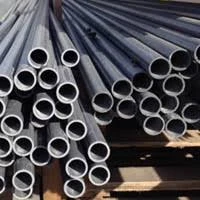
-
 Afrikaans
Afrikaans -
 Albanian
Albanian -
 Amharic
Amharic -
 Arabic
Arabic -
 Armenian
Armenian -
 Azerbaijani
Azerbaijani -
 Basque
Basque -
 Belarusian
Belarusian -
 Bengali
Bengali -
 Bosnian
Bosnian -
 Bulgarian
Bulgarian -
 Catalan
Catalan -
 Cebuano
Cebuano -
 China
China -
 China (Taiwan)
China (Taiwan) -
 Corsican
Corsican -
 Croatian
Croatian -
 Czech
Czech -
 Danish
Danish -
 Dutch
Dutch -
 English
English -
 Esperanto
Esperanto -
 Estonian
Estonian -
 Finnish
Finnish -
 French
French -
 Frisian
Frisian -
 Galician
Galician -
 Georgian
Georgian -
 German
German -
 Greek
Greek -
 Gujarati
Gujarati -
 Haitian Creole
Haitian Creole -
 hausa
hausa -
 hawaiian
hawaiian -
 Hebrew
Hebrew -
 Hindi
Hindi -
 Miao
Miao -
 Hungarian
Hungarian -
 Icelandic
Icelandic -
 igbo
igbo -
 Indonesian
Indonesian -
 irish
irish -
 Italian
Italian -
 Japanese
Japanese -
 Javanese
Javanese -
 Kannada
Kannada -
 kazakh
kazakh -
 Khmer
Khmer -
 Rwandese
Rwandese -
 Korean
Korean -
 Kurdish
Kurdish -
 Kyrgyz
Kyrgyz -
 Lao
Lao -
 Latin
Latin -
 Latvian
Latvian -
 Lithuanian
Lithuanian -
 Luxembourgish
Luxembourgish -
 Macedonian
Macedonian -
 Malgashi
Malgashi -
 Malay
Malay -
 Malayalam
Malayalam -
 Maltese
Maltese -
 Maori
Maori -
 Marathi
Marathi -
 Mongolian
Mongolian -
 Myanmar
Myanmar -
 Nepali
Nepali -
 Norwegian
Norwegian -
 Norwegian
Norwegian -
 Occitan
Occitan -
 Pashto
Pashto -
 Persian
Persian -
 Polish
Polish -
 Portuguese
Portuguese -
 Punjabi
Punjabi -
 Romanian
Romanian -
 Russian
Russian -
 Samoan
Samoan -
 Scottish Gaelic
Scottish Gaelic -
 Serbian
Serbian -
 Sesotho
Sesotho -
 Shona
Shona -
 Sindhi
Sindhi -
 Sinhala
Sinhala -
 Slovak
Slovak -
 Slovenian
Slovenian -
 Somali
Somali -
 Spanish
Spanish -
 Sundanese
Sundanese -
 Swahili
Swahili -
 Swedish
Swedish -
 Tagalog
Tagalog -
 Tajik
Tajik -
 Tamil
Tamil -
 Tatar
Tatar -
 Telugu
Telugu -
 Thai
Thai -
 Turkish
Turkish -
 Turkmen
Turkmen -
 Ukrainian
Ukrainian -
 Urdu
Urdu -
 Uighur
Uighur -
 Uzbek
Uzbek -
 Vietnamese
Vietnamese -
 Welsh
Welsh -
 Bantu
Bantu -
 Yiddish
Yiddish -
 Yoruba
Yoruba -
 Zulu
Zulu
FRP Insulated Storage Tanks for Enhanced Efficiency and Temperature Control in Storage Applications
FRP Insulated Storage Vessels A Comprehensive Overview
In recent years, the demand for advanced storage solutions has increased significantly across various industries. One innovative solution that has emerged in this landscape is the use of Fiber Reinforced Plastic (FRP) insulated storage vessels. These vessels are becoming increasingly popular due to their superior properties compared to traditional material options. This article aims to explore the characteristics, benefits, and applications of FRP insulated storage vessels.
Understanding FRP and Its Advantages
Fiber Reinforced Plastic (FRP) is a composite material made from a polymer matrix reinforced with fibers, such as glass or carbon. This combination results in a lightweight yet highly durable material with exceptional resistance to corrosion, temperature fluctuations, and UV degradation. The use of FRP in insulated storage vessels enhances their performance in various ways.
First and foremost, FRP’s resistance to corrosion significantly extends the lifespan of storage vessels, especially in industries that handle aggressive chemicals or operate in harsh environments. Unlike traditional metal tanks that may corrode over time, FRP vessels maintain their integrity, resulting in lower maintenance costs and reduced risk of product contamination.
Thermal Insulation
One of the primary functions of FRP insulated storage vessels is their thermal insulation capabilities. These vessels typically incorporate advanced insulation materials that significantly reduce heat transfer, maintaining the desired temperature for the stored contents. This feature is particularly beneficial in industries requiring the storage of temperature-sensitive materials such as pharmaceuticals, food products, or chemicals.
The thermal efficiency of FRP vessels ensures that energy consumption is minimized, making these solutions not only environmentally friendly but also cost-effective in the long run. By reducing energy expenditure, companies can improve their overall sustainability footprint while still ensuring the quality and safety of their stored materials.
Design Flexibility
Another significant advantage of FRP insulated storage vessels is their design flexibility. Unlike traditional storage solutions, FRP can be molded into various shapes and sizes, allowing for customization to meet specific requirements. This adaptability makes FRP vessels suitable for a wide range of applications, from small-scale operations to large industrial setups.
frp insulated storage vessel

Custom designs can include various features such as built-in heating or cooling systems, specialized discharge mechanisms, and advanced monitoring technologies. This flexibility in design aids manufacturers in optimizing storage solutions tailored to their operational needs, increasing efficiency and productivity.
Applications of FRP Insulated Storage Vessels
FRP insulated storage vessels find applications across a broad spectrum of industries, including
1. Chemical Industry Due to their corrosion resistance, FRP vessels are ideal for storing a variety of chemicals, reducing the risk of leakage and environmental contamination.
2. Food and Beverage In this sector, maintaining the quality and safety of products during storage is crucial. FRP vessels can ensure that temperature-sensitive food items are stored under optimal conditions.
3. Pharmaceuticals The pharmaceutical industry benefits immensely from the thermal insulation properties of FRP vessels, which help in preserving the efficacy of drugs and ensuring compliance with strict storage regulations.
4. Energy In the renewable energy sector, particularly solar and wind, FRP vessels are utilized for storing materials like water and other fluids, contributing to energy efficiency.
5. Waste Management As industries evolve, FRP vessels serve as excellent solutions for hazardous waste storage, ensuring safety and compliance with environmental regulations.
Conclusion
FRP insulated storage vessels represent a significant advancement in storage technology, offering numerous advantages over traditional materials. Their corrosion resistance, thermal insulation capabilities, and design flexibility position them as a desirable solution in various industrial applications. As industries continue to seek efficient and sustainable storage solutions, FRP vessels are likely to play an increasingly pivotal role in shaping the future of storage technology. Investing in these innovative vessels can lead to enhanced operational efficiency, reduced costs, and a lower environmental impact, all essential considerations for modern industrial practices.









